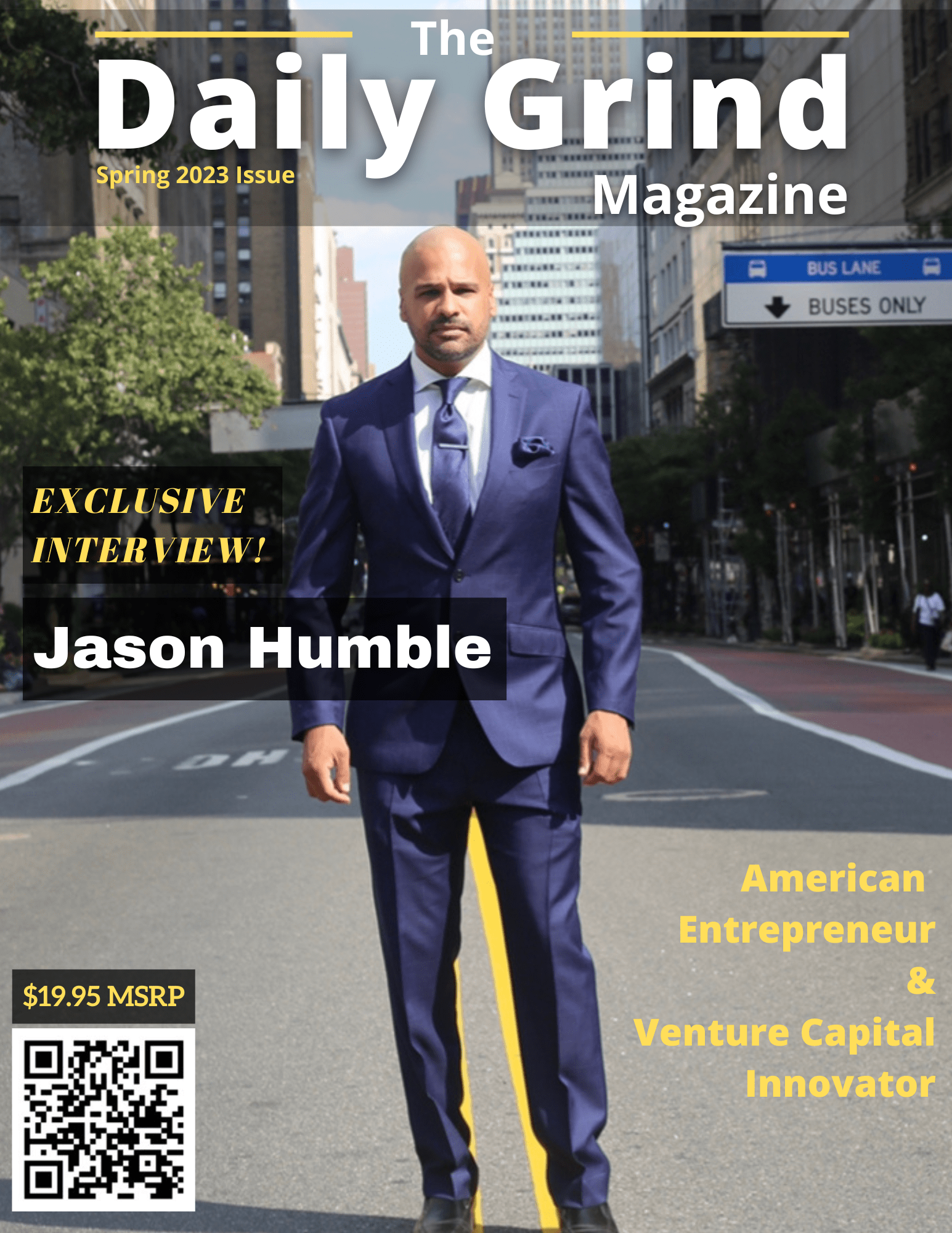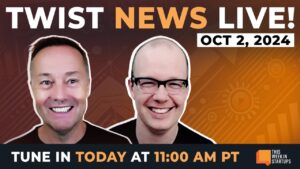Unknown: We've been
speaking with top Economists and
organizational experts to Better understand how the
U.S. is going to get back To the office post
pandemic. Today I'm Speaking with Kate
Lister, president of Global Workplace
Analytics. Broadly, just to kick it
off, what is the future Of the workplace? Well, I'm very glad that
you said back to the Office and not back to
work, because so many People use that it's
like, it's not as though We haven't been working
for the last two years. Back to the office is
going to be very Different than the place
we left, both physically And how we use it. If all
of the data is correct, And it's been coming in
for the last two years, And is very consistent,
it looks like about 10 to 20% of people will be in
the office full time, About 10 to 20%, will be
at home full time. And That middle will be
hybrid. So just like Before, the pandemic,
about 80% of the Workforce wants to work
from home, at least some Of the time. The
difference now is I think They're more galvanized
in their resolve. That's a great word
galvanized. So speaking Of that, so what job
categories are the most Flexible when it comes to
remote work and which Ones are the least? Well, a lot of them have
become more flexible, Because they've learned
to be. In the past, we Would see that it was
really the tech sector, And perhaps the health
services sector that led The charge. But what
we've learned during the Pandemic is that you
know, just about any
Industry has some element
that can be performed Remotely. And so I think
we're going to see a much Greater a much wider
range of organizations And type of organizations
that are doing this. It Is still going to be
heavily tech finance Industry is kind of a low
hanging fruit, health Services, even in terms
of doctoring, which was, You know, pretty much
not, not done that very, Not done very often prior
to the pandemic. Sure. And which is the
most resistant to this Remote work, or what
industries do you see Will not be able to
adapt? The legal industry has
always been a holdout. But I've got a client
that has 4000 lawyers Around the world. And
they're very much looking At a hybrid mode, in part
because other law firms Are offering it too. And
I think that's something That if we weren't in a
talent shortage, if we Weren't in worker
shortages, I'm not sure That we'd be looking at
as much flexibility in The future as we are now. So on that. So is the
nine to five and the five Day a week work schedule
over? Yeah, that's an
interesting question. A Lot of employers don't
realize that a big part Of the flexibility that
people are looking for, Is in time flexibility.
In fact, even more so Than where they work,
where we don't, we don't Live a life that is
linear anymore. We never Were good marathoners,
we've always been Sprinters. And so you
know, it's kind of silly To think if you think
about it, that we would Think people work best
from 9am to 5pm. And Everybody would work best
that way. It's just not
The way it is. And it's
not the way it is for Other reasons too. We
work across time zones. We you know, we've got to
be flexible, and Certainly for parents,
you know, it's it's part Of the value of this is
being able to have a life And earn a living. So you mentioned the
worker shortage and the Talent shortage, a lot of
people are referring to That as the Great
Resignation. So people Are taking their talents
elsewhere, if I can't Work from home, or if I
can't set my own Schedule. Can you talk to
me a little bit about What power potential
employees might have, as They're trying to apply
for new jobs or when They're looking to make
their great resignations? Yeah, I prefer to think
of it as the great Reevaluation, and that's
not my term, I read it Somewhere. I think that
we've had this glimpse a Lifestyle that we like,
and we don't want to give It up. I've always felt
that you never really Realize how bad things
are until they're over And then you step back
and you look at it. Really was I on an
airplane four days a Week, you know, really
did I work these crazy Hours and people are
looking at it legal Industry, for example,
and saying, you know, I Don't I don't think I
want that. And now I've Got a lot of
alternatives. They may Not have wanted it
before, but now there's a Lot of opportunity for
places that will allow Them to work flexibly
including virtual law Firms. So are you Seeing that
companies are reacting to Employees demands or
potential employees
Demand, or is this
something they're doing Prematurely? They're much more open to
it. I mean, a couple of Things changed. We've
always seen in the past That the the biggest
difference between a Manager or a leader who
supports remote work and Who doesn't is whether or
not they've done it Before. And so pretty
much, you know, in about The first six to nine
months of the pandemic, We were seeing a lot of
surprise within Organizations that wow,
I, you know, I really Didn't think this could
work. And they learned That it could, it could
not only work, but it had A lot of advantages,
including increased Productivity, which is
something that I've been Saying for 20 years,
people tend to give back Half of the time that
they would have otherwise Spent commuting, in fact,
overworking is one of the Biggest problems in with
with remote work, it's Hard to turn it off when
it's there with you. 24/7. So we've proven a
lot of those things that, You know, before we have
research on, but but Maybe employers didn't
really see for Themselves. So that's
changed, those attitudes Have changed. And then
certainly knowing that, You know, your talent
could work out the door, I heard somebody say,
it's easier to quit a Keyboard. You know, it's
like, On the keyboard, they
mean? No, no, no, no, that,
that I could sit here in My chair working for one
organization today. And Tomorrow, I could be
working for another Organization. You know,
it's the mobility of it, The virtual mobility of
it is much greater.
I hadn't thought about
like that. Yeah, it's Like you're sitting in
your room. So why don't I Just work for the company
that is more open to me Doing that, and might pay
me more for this. But But again, you know,
let me go back, clearly, This is not going to be
an all virtual, it's Going to be hybrid, and
quite frankly, hybrid is A lot harder. And I don't
think a lot of Organizations are ready
for that. They think, oh, We did mobile, you we've
got this. But going when Half of the people are in
the office and half of The people are not,
that's going to create a Lot of issues that are
not that, it's not that They can't be overcome.
But it takes a great deal Of intention
intentionality, to, to Make it work
successfully. Sure. I have a lot of
friends who are like, I Don't want to go to the
office and then be back On Zoom again, like
what's the point of Zooming from my office?
So can you explain a Little bit about how
companies can make sure Going back into the
office is worthwhile? And What they need to think
about in terms of Challenges to make sure
everybody's included? Sure. I mean, that's what
I've been working with Companies doing for the
last two years is sort of Reevaluating how are we
going to operate? First Of all, can we operate
remotely? And I think We've proven that
secondly, should we and Then how can we and that
last part is is really Important. The
understanding that There's a potential for
an equity issue, that People that are in the
office are going to be Favored for a job
promotions for increased
Compensation. It's
something that that we Really have to keep in
mind. Meetings, hybrid Meetings. It used to be
when you were the virtual Participant on a meeting,
you kind of felt like an Outcast and I have heard
through employee surveys And through focus groups,
and that kind of thing, That one of the things
that remote, formerly Remote people enjoy is
now actually having an Even playing field. And
so we have to make sure That when we go back,
that doesn't, that Doesn't go back to the
old way. You know, we've Got a whole list of
things that organizations Should do to make sure
that they're being Inclusive. Great. Can you give me a
example of two or three Of those? Yeah. Well, I'll tell you
a story. I, I was talking To a board of directors.
And it was just after we Had wrapped up a six
month engagement, they Had about 3500 global
employees. And we're Teaching them how to how
to be better hybrid Organization. And at the
end of the meeting, I Said, Okay, let's all
rate this meeting. And I'm going to go first,
I'll give it a three on a 10 scale. Here's why. You
didn't have your cameras On in the room, so I
couldn't see you. When You were speaking you
were at a long table. So I couldn't really hear
you know who it was was Talking or identify who
was talking. When Somebody asked a
question, I had an answer For it, but I could, I
wasn't able to break Through I wound up
texting the chairman of The board and saying,
Hey, I'd like to answer That question. So you
know, those are the kinds
Of problems that will
come up and the way you You deal with them some
ways, you know, one thing Is make somebody that is
remote, the meeting Leader so that they've
got that perspective, or Have a buddy system so
that you know someone That is remote has a
buddy in the room, go Around the room and call
on everybody. There are Even technologies coming
on that will identify are Just the men talking or
just the women talking or Have we heard people with
accents. So being, again, That that that
intentionality about Including people, one of
the things that we've Found throughout the the
pandemic, particularly Most recently is that
this has given Organizations an
opportunity to really Increase diversity,
because they can hire From anywhere from all
over the world. But we Have to make sure that
we're including those People once we've brought
them on board. But we've talked a lot
about the how beneficial Work from home or remote
work can be for Organizations and for
employees. There's a huge Class of people who are
going to be left behind By this, maybe that type
of job that they have Cannot be done remotely,
what can we do to make Sure that those people
are included in economic Growth and better address
that? Yeah, and that's about
half of the workforce, Quite frankly, about 56%
of the population has a Job that can be done from
home. So it's a very Important question. If we
were talking to an Organization before the
pandemic about a remote Work program, we also
would have been talking To them about other kinds
of flexibility. So just
Just being able to shift
their hours is is Important to people.
Being able to choose what Days they work, maybe
they want to go to part Time. Even something as
simple as being able to Flex what time they take
a break, has a huge Impact on people. And I
think we also need to be Looking, this is not new
but the pandemic I think, Certainly accelerated, in
our minds anyway, that we Need to be upskilling.
And we need to be Re-skilling because more
and more jobs are going To at the low end of the
wage spectrum are going To be lost. And so we
need to have a place for Them to go. That brings up another
idea that we've talked About, which is like AI
and robotics. So you gave A great example of how AI
can help us increase more Diversity in the
workplace by, you know, I Would love to see those
statistics on who talks More on the meeting and
that kind of thing. But When we talk to the
actual retraining and Retooling of the
workforce, how do you see AI and robotics defining
the future of work? I don't think it's going
to be very long before we Have a hologram
equivalent, I've seen Some fabulous decorations
of I know, demonstrations Of it, and the cost has
come way down. So I think Maybe in a five year
horizon, we're going to See something that
significant. In fact, the X Prize, I think this
year last year, was for The first organization,
the first company that Could simulate touch,
virtually. So I reached Out like this, I can
actually touch you. So Lots of interesting
things going on there. It Will also help help
people be more effective
At their jobs. You know,
having all of the the Sort of base intelligence
in the cloud and Available to me, and the
so that what, that I'm Able to do what I do
best, which is think Process, triangulate, I
don't need to have all That other noise in my
head. I think we're also Going to see a redefining
of jobs. I mean, I would Suspect that a very large
part of your job is not The part that you enjoy.
Typically about, you Know, 80% of what you do
is not what you enjoy is Not what you best you're
best at. But there is Somebody that's good at
that. And there is Somebody that enjoys
that, you know, I picture A time when I'm working
on a PowerPoint Demonstration and the
computer shakes. And it Tells me you know, you're
not very good at this. And did you know that we
have 12 contractors that Could be doing this for
you? And did you also Know that somebody else
in the organization just Did a presentation on
this exact same topic? Maybe you should talk to
them. I want to come back to
the great resignation. So The big question is just
like is the great Resignation or
restructuring of our Economy fundamentally,
and how does remote work Play into that? I think people are going
to require, request, Demand, more flexibility,
more trust, you know, you Go to the Glassdoor
ratings down and it'll, It'll tell you you know
how an organization is Treating its people. With
the increase in Environmental, social and
governance reporting ESG Reporting, it's going to
be right there in their Annual report, what's
their turnover ratio?
What's their commitment
to training? What's their Engagement scores, it's
it's all becoming very Much more visible. And so
I think that that whole Relationship of employee
employer is going to be Very different in the
future. So I think what I can
summarize is your seeing A move towards more
transparency and more Trust, and in the end,
hopefully a more Productive and better
growing economy? And it goes both ways,
the employee has to trust The employer, and the
employer has to trust the Employee. And let's face
it, it isn't any Relationship that has
trust better than one That doesn't? There's
also this concept of Bringing your whole self
to work. One of the Things I think we've
learned over the last Couple of years is that
we're whole people and And our level of empathy
has increased, you know, When your sitting, the
CEO sitting in a chair, And his dog walks up or
her her grandchild crawls Onto her lap, you have a
whole different Impression of that
person. And you can't Forget that. And in the
companies that I've Worked with it, they're
very interested in Continuing that kind of
relationship. And people Say that a big percentage
of people say that they Can't be themselves at
work. That's exhausting. It's hard enough, being
myself than than two People, or three people.
And I think we have to Get over that. And that
all is part of that trust And that transparency and
that openness. Do you think remote work
is going to make the Class divide worse in the
U.S.? It could. Remote work
could increase the class
Divide if we're not
careful. I think what we Need to be very careful
that it doesn't. I think As more jobs become
computer enabled, there Will be more people that
are able to work Flexibly. And so I think
that that will help. If I Think if you think about
the the city centers and The people that may be
still have to go to an Office there. If we do it
right, we can keep down The traffic and make
their route to work Easier. As we head back into the
office, is flexible work Going to be still in the
test phase? Or are we Going to do things for
about six months and then Change even though 80% of
the workforce has said That they want this
flexibility? It worries me to some
extent that organizations Are going to get back to
that people are going to Get back to the office.
And the organization Hasn't done the kind of
planning that it needs to For doing hybrid well.
And so six months after They've been allowing
flexibility, and hybrid, They're going to go back
and say, you know, that Didn't work. Well, you
know, in some ways I Think about the way that
we've been doing remote Work is kind of like, if
we had a cell phone, when We first got cell phones,
we only used it to make Phone calls at the house.
Or when we got Smartphones, we only used
it to make phone calls. We're really doing that
with the way we're Working now. We're using
old practices and Processes to work in new
ways. And if we want this To succeed, and if we
want to maximize the Opportunities in terms of
productivity, and Diversity and attraction,
and retention and
Environmental
performance, we need to Rethink and reconstruct
those practices and Processes. You know, I'm
seeing, for example, Organizations that say,
okay, you can work a Hybrid on Tuesdays and
Wednesdays, that doesn't Make any sense. Because
life doesn't happen like That. If there's
something important going On on a Wednesday, then
you know, I'm going to go To the office. It also
sends the message that I Don't trust you to take a
Monday and Friday and Work at home because I
think that you're going To be on the golf course.
And leaders want to lead So they want to make
decisions and they want It they want to have a
structure. But I think We've just thrown that
out the window the last Couple years, we've got
to be comfortable with Ambiguity, and we've got
to be comfortable with Change. And this is not a
one and done. We're not Going to go back and get
it right. We're going to Go back and reevaluate.
And in order to do that, Organizations need to
figure out what do they Want to get out of this?
What are your goals for This music? If it's
attraction and retention, Then let's measure it.
Let's measure what it was Before the pandemic
during the pandemic. And After this new flex
policy that you have. Lets make decisions based
on science rather than Gut feel or you know what
the CEO happens to want. It's really interesting
that you're asking for Flexibility for both from
both the employees and The employers. Because
it's nerve, this, we've Been in a place of
flexibility and Uncertainty for almost
now we're in the third Year of the pandemic, and
it's anxiety producing.
So I think as managers,
they're trying to create Some sort of structure.
But maybe their hearts in The right place, but it's
not working out? I don't think any of us
know, you know, a lot of Companies are sort of
trying to define what the Workplace should look
like, you know, what Should, how should the
physical workplace Change? We're pretty sure
that people are going to Want to do their focus
work at home, and they're Going to want to do some
of their collaborative Work in, in the office.
So does that mean that we Get rid of the sea of
desks, and we put in more Conference rooms, and we
put in more informal Area. A lot of companies
are going to that they're Going to unassign desks,
for example, because, you Know, if you're not going
to be only going to be There two days a week, or
one day a week, you know, That's kind of that's a
big waste of space. And That's going to continue
to evolve over the next Three to five to 10
years, because of lease Terms, you can't just get
rid of the office space. So for some companies, it
doesn't make any sense to To make those changes yet
to to move to a more Activity based format, if
they have to help hold The space anyway. But the
real question they're Asking themselves is how
do we make people want to Come to the office? How
do we make it a place That supports the work
they're doing? And for The last five to 10
years, it hasn't, it's Been too hot, too cold,
too noisy, air quality's Poor, don't have a place
to meet. And I think that This has sort of just
brought it all to a head, We, we have to make a
value proposition if we Want people to come back
to the office.
You know we did talk in
2020 right before, I Think I did my first
interview with you in the Office, maybe or the
first interview for that Piece I actually did in
the office. And then the Second one, I did it at
home, which is crazy. We're now three years in
what trends have we Learned? What have we
gotten better at what Changes have you seen
over the course of the Pandemic? I thought I think we've
all gotten better at Using technology, which
we should have known how To do all along. About
being flexible about Communicating better, you
know, we've seen CEOs, You'll have weekly
meetings, weekly town Halls, and that really
meant a lot to people and And the extent to which
they want to people want To stay with the
organization depends a Lot on how the their
employer handled the, the Pandemic. Some companies
haven't even announced What they're going to do
when the pandemic is Over. And what what
they're going to require In terms of in office
work. And that's, you Know, that's a lot of
ambiguity and ambiguity Is stressful. I think
we've also faced up to The, the incredible
stress that people are Under. They were under a
good bit of stress before The pandemic, but this
has only accelerated it. And it's not just stress
over work. It's also Stress about our
financial security, and About our families, and
about other things in our Lives. And so sort of
that that whole person Point of view,
organizations are Realizing that people do
bring their whole selves To work and that's not
always good. And that
They need to to be
treating that that whole Person mental health has
just become a huge Buzzword in the in the C
suite. You know, Something you wouldn't
have heard three or four Years ago in a boardroom,
but you know, there would Have been Snickers around
the room if somebody was Talking about we should
do something about mental Health. But people,
organizations are really Taking it seriously now,
because we can't perform Our best unless we feel
our best.





